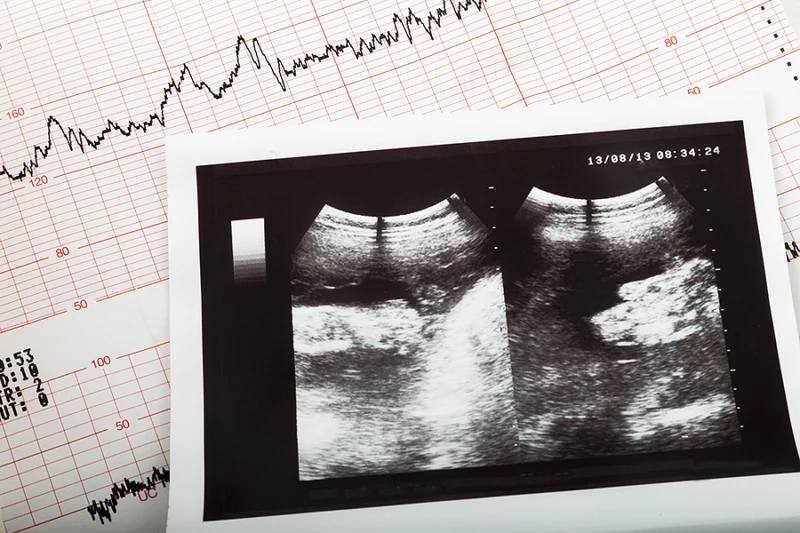

Former Philippines President Rodrigo Duterte gives a speech during a campaign rally at Southorn Stadium on March 9, 2025, in Hong Kong, China. / Credit: Anthony Kwan/Getty Images
Washington, D.C. Newsroom, Sep 26, 2025 / 14:36 pm (CNA).
Here is a roundup of Catholic world news from the past week that you might have missed:
Former Philippines president Rodrigo Duterte charged with murder
After Filipino Catholic bishops welcomed the arrest of Rodrigo Duterte in March, the International Criminal Court (ICC) has now charged Duterte, the former president of the Philippines, with murder.
The three charges laid against Duterte, made public on Sept. 22, were dated back to July, according to the BBC. The first charge relates to Duterte’s involvement in the murder of 19 people in Davao City while he served as mayor from 2013 to 2016. The remaining charges relate to Duterte’s “war on drugs,” which saw the murder of 14 people across the country and the attempted murder of 45 others.
Caritas Philippines President Bishop Jose Colin Bagaforo of Kidapawan called Duterte’s detention a critical step toward justice, Vatican News reported in March. “For years Duterte has claimed that he is ready to face the consequences of his actions. Now is the time for him to prove it,” the bishop said.
Syriac Catholic bishop discusses role of Christians in rebuilding Syria
In a meeting with the Levantine National Council, Syriac Catholic Bishop Hanna Jallouf discussed the role of Christians in public life as the country rebuilds after the fall of the Assad regime last winter.
According to a report from the Syriac Press, the meeting took place on Sept. 25 at the Monastery of St. Lazarus in Daramsuq (Damascus). “The meeting featured an in-depth discussion on the country’s current challenges, focusing on ways to enhance the role of Christians in public life while also addressing their concerns and fears amid ongoing instability,” the report said.
Jallouf reportedly advocated for “citizenship and pluralism as the foundation for Syria’s stability” and encouraged the council to continue its efforts “to preserve the Church’s witness and unity” amid a period marked by fear for Christians and other religious minorities in the country.
Christians in India suffer harassment, arrests at hands of Hindu groups
Police in the north Indian state of Uttar Pradesh arrested 14 Christians on Sept. 19 for allegedly violating the state’s stringent anti-conversion law and the national criminal code, according to UCA News.
The report also noted that a group of 19 girls accompanied by a Catholic nun and two staff members of a nongovernmental organization were also arrested Sept. 19 in Jharkhand, which borders Uttar Pradesh from the south, for violating the conversion law as well. The group was released the following day. According to Church sources cited in the report, the arrests were made after “allegations by some right-wing Hindu groups as the girls were traveling to attend a training program, and the nuns came to the railway station to welcome them.”
Chair of Philippines Bishops’ Conference speaks out against corruption
Bishop Broderick Pabillo of Taytay in Palawan, Philippines, chair of the Catholic Bishops’ Conference of the Philippines Office on Stewardship, has published a pastoral letter condemning the normalization of corruption in the country.
“We must not accept corruption as the norm — it is stealing the people’s taxes,” he said in the letter, according to local reports, pointing out that government funds have been redirected away from critical services such as hospitals, clean water initiatives, safe roads, and electricity for political reasons. “If we want to reduce corruption, we must stop voting for relatives in power,” the bishop added.
Chaldean Catholics return to ancestral homeland in Turkey after nearly half a century
A Chaldean Catholic community from the southeast village of Köreli in the Şirnak Silopi district of Turkey returned to their ancestral homeland after nearly half a century, according to a local report on Sept. 25.
About 150 pilgrims, who traveled from across Turkey and abroad, participated in the 10-day visit and celebrated a “deeply symbolic Mass and offered prayers at the village cemetery.”
According to the report, Turkey’s Chaldean Catholic Archbishop Sabri Anar expressed gratitude to the government and for those who welcomed the group. “Our aim is to reconcile those who left this land with their past and show them that the region is safe,” he noted. “Each visit fills us with happiness. In the eyes of our people, we can see the longing for homeland, for soil, and for history.”
Australian bishop returned to public ministry after abuse allegation dismissed
Bishop Richard Umbers of the Archdiocese of Sydney has been reinstated to public ministry after an independent investigation determined abuse allegations lodged against him were “not sustained,” according to an internal email cited in a Sept. 24 report by the Pillar.
“The report from the independent investigator highlighted information given by the complainant that was inconsistent with other evidence obtained and therefore, the investigator could not be satisfied that the alleged conduct occurred,” the email by archdiocesan vicar general Father Samuel Lynch said.
The claim of historical abuse against the Opus Dei bishop had been made in early July, after which he stepped down in accordance with archdiocesan protocol.
Bangladesh Catholics fear Muslim extremist persecution as elections loom
The Catholic community in Bangladesh is “living in fear” of persecution as Islamic fundamentalism is on the rise and elections loom in the coming February, according to a Sept. 24 Crux report.
“We are afraid of the upcoming elections. Because, before and after the elections, we have been subjected to many injustices and this time there is a greater possibility of it. So, we are constantly praying to God to protect us,” Welcome Lamba, a leader of the Khasi Indigenous village of Pratappur Punjee, told Crux, which noted that there were over 1,000 cases of human rights violations against religious minorities in the country from 2023 to 2024.
Australia donates vehicles to Catholic Church Health Services in Papua New Guinea
After government officials in Papua New Guinea (PNG) announced in June a nationwide HIV emergence, the Australian government has now donated “a fleet of vehicles” to the Catholic Church Health Services in PNG to help aid efforts to expand access to treatment for HIV, according to a local report on Sept. 25.
“The vehicles will support outreach services that include community-based HIV testing, prevention of mother-to-child transmission, antiretroviral therapy adherence, and referrals to other clinics and social services,” the report stated.
Angolan bishop speaks out against deforestation, poaching
Bishop Martín Lasarte Topolansky in Lwena, Angola, spoke out this week against escalating environmental destruction in eastern Angola, particularly in border areas with Zambia, where illegal logging and poaching are severely impacting the population, ACI Africa, CNA’s news partner in Africa, reported Thursday.
“It is with a heavy heart that I see the felling of precious trees and the disappearance of animals that are part of our environmental heritage. We are witnessing a true plunder of what belongs to the Angolan people,” Lasarte told ACI Africa, while recalling a recent pastoral visit to communities in Eastern Moxico.
The bishop also noted “illegal exploitation of our forests by foreign citizens crossing our border,” likely by Zambians taking advantage of weak local enforcement. He further called on the Angolan government to secure the country’s eastern border and establish stricter environmental laws. “This land is a gift from God, and we will be accountable for how we treat it,” he said.
Read More
